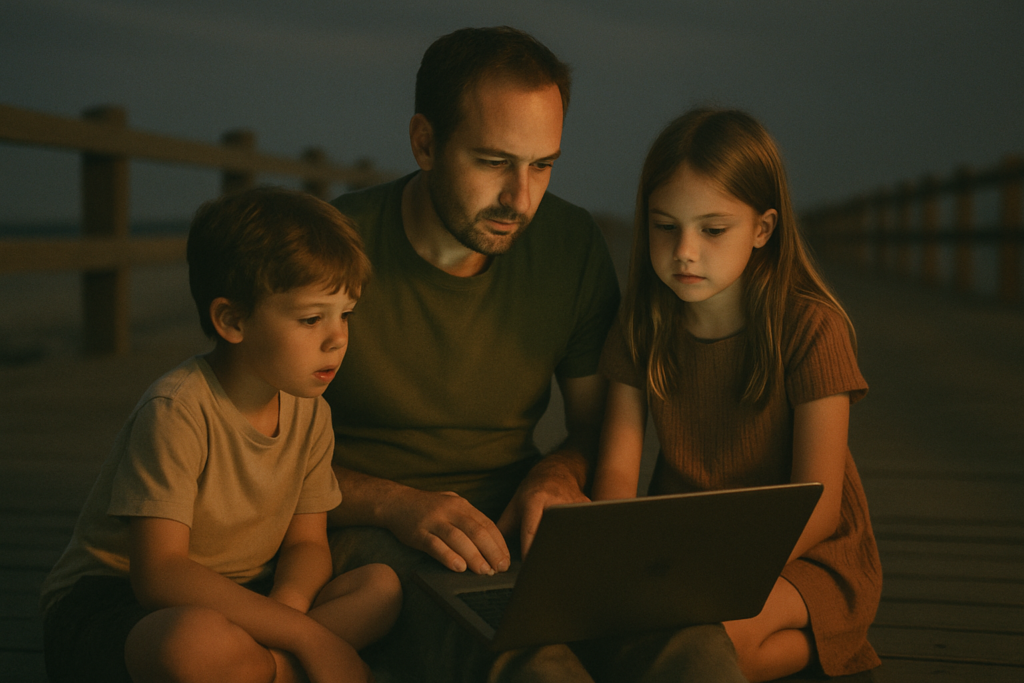In today’s digital age, social media has become an integral part of our daily lives, influencing how we connect and communicate with one another. As a blogger who delves into various societal dynamics, I find the impact of social media on family relationships particularly intriguing. From shaping how families stay in touch to potentially altering the dynamics of familial bonds, the role of platforms like Facebook, Instagram, and Twitter cannot be overlooked.
As I explore the nuances of this topic, I aim to uncover both the positive and negative effects that social media can have on family relationships. While these platforms offer new ways for families to interact and share moments, they also present challenges such as digital distractions and miscommunication. Through this article, I’ll delve into the complexities of how social media shapes modern family dynamics, shedding light on its implications for familial connections in today’s fast-paced world.
Understanding the Impact of Social Media on Family Dynamics
Social media has transformed the way families communicate, both positively and negatively. Let’s delve into how social media has reshaped family relationships.
How Social Media Has Changed Communication Within Families
Social media platforms have revolutionized the way families interact. Quick messages, photos, and videos can be shared instantly, keeping everyone updated regardless of physical distance. However, this convenience has also led to a shift from face-to-face conversations to digital exchanges, impacting the depth of communication within families.
The Role of Social Media in Strengthening Family Bonds
Social media serves as a tool for strengthening familial connections by providing a virtual space for sharing experiences and staying connected. Families can engage in group chats, share milestones, and support each other even when apart. Despite the positive aspects, over-reliance on social media for communication may sometimes lead to misunderstandings or a lack of meaningful, in-person interactions, affecting the overall quality of family bonds.
Negative Effects of Social Media on Family Relationships
Social media’s influence on family relationships isn’t always positive. Here are some ways it can have negative effects:
Increased Isolation and Reduced Face-to-Face Interactions
Social media can lead to increased isolation within families as members may spend more time engrossed in their digital devices rather than engaging in face-to-face interactions. This can reduce the quality of communication and bonding within the family unit. For example, during meals or gatherings, family members might be more focused on their phones than on each other, diminishing the shared experiences that strengthen relationships.
Cyberbullying and Its Impact on Family Trust
Cyberbullying, a prevalent issue on social media platforms, can have a significant impact on family trust. When a family member becomes a target of cyberbullying, it not only affects their mental well-being but also creates a sense of insecurity and distrust within the family. The anonymity provided by social media can make it challenging to identify the perpetrators, leading to a breakdown in the trust that is essential for healthy family relationships.
Strategies to Mitigate Negative Effects
To address the negative impacts of social media on family relationships, implementing specific strategies is crucial. By setting boundaries for social media use and promoting positive online activities for families, it’s possible to navigate the challenges posed by excessive digital interactions.
- Setting Boundaries for Social Media Use
I recommend establishing clear guidelines for when and how social media can be accessed within the family setting. By creating designated tech-free times, such as during meals or family outings, we can encourage meaningful face-to-face interactions and strengthen family bonds. Additionally, setting limits on screen time for both parents and children can help prevent the negative consequences of excessive social media use, fostering a healthier balance between the virtual and real worlds. - Promoting Positive Online Activities for Families
Encouraging engaging and constructive online activities can also mitigate the negative effects of social media on family relationships. Instead of passively scrolling through feeds, consider participating in interactive online challenges, educational games, or collaborative projects as a family. By focusing on activities that promote creativity, teamwork, and communication, we can leverage the positive aspects of digital technology to enhance family connections and create shared experiences beyond the screen.
The Future of Family Relationships in the Social Media Era
Anticipating the future landscape of family dynamics amidst the dominance of social media presents intriguing possibilities and challenges.
Predictions and Emerging Trends
Forecasting the trajectory of family relationships in the era of social media involves acknowledging the evolving trends and potential outcomes. One emerging trend is the integration of technology to strengthen familial bonds, with families utilizing digital platforms for collaborative activities and shared experiences. This shift may lead to a redefinition of quality time, where virtual interactions supplement face-to-face communication.
Another prediction revolves around the increased emphasis on digital etiquette and online behavior within families. As social media continues to influence daily interactions, cultivating a culture of respect, empathy, and responsible digital citizenship among family members will be imperative for maintaining healthy relationships.
Furthermore, the future of family relationships in the social media era may witness a growing awareness of mental health concerns arising from excessive screen time and online pressures. Families are likely to prioritize mental well-being by encouraging balanced technology use, fostering open communication about digital experiences, and seeking professional support when needed.
In this evolving landscape, proactive discussions around digital boundaries, privacy protection, and the influence of online content on family values will become essential for navigating the complexities of social media in the context of familial connections.



